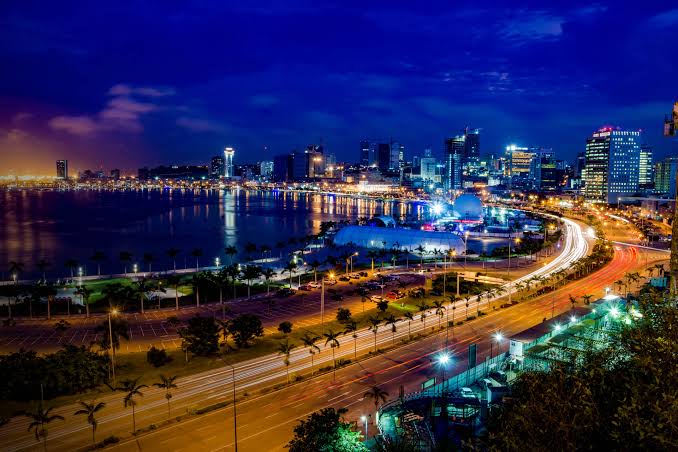African nations have huddled together in face of climate and Covid storms. They must make that unity pay off for their citizens
“It was the best of times, it was the worst of times.” So opens Charles Dickens’ A Tale of Two Cities. Set in London and Paris during the late 1700s and the lead-up to the French Revolution, the novel was a warning about what happens when wealth funnels upwards while the masses stagnate. Nowhere do the best and worst of times collide with more geopolitical force than in Africa.
African writers swept the board for literature awards from the Nobel to the Booker, while seven out of eight children in the continent’s sub-Saharan region are unable to read by the age of 10. This year the continent was home to the slowest internet speeds on the planet, as African judges granted the world’s first patent given to a robot inventor. About 50 million Africans are expected to fall into extreme poverty in 2021, when the continent’s richest billionaires have seen their wealth increase by a fifth.
Globalisation has polarised societies, an effect that has been supercharged during the pandemic. This pattern is not unusual in other nations, but to apply it to Africa suggests that it possesses a unity beyond the mere geographic. African nations have huddled together in the face of climate and Covid storms – with good reason. Instead of rewarding African scientists for identifying the threat of Omicron, the west imposed travel bans on the continent. The suspicion is that had the Sars-CoV-2 virus been found in Africa, it would have been cut off.
The pandemic has made visible a world being shaped to Africa’s disadvantage. Low vaccination rates are a reason for the emergence of dangerous coronavirus variants, so why let just 8% of 1.3 billion Africans be fully vaccinated? The industrialised world won’t issue Africa a vaccine patent waiver, and foreign aid is just 2% of the continent’s GDP. So African nations can’t manufacture their own cheap medicines and lack the foreign exchange to cushion distribution costs.
Climate cost
Despite having played a negligible role in creating the climate crisis, African countries already find themselves paying a heavy price for it. The EU plans to introduce greenhouse gas taxes on imports that will pull a carbon curtain across the Mediterranean. Carlos Lopes of the University of Cape Town says African train projects built by Chinese companies are not using the low-carbon technology rolled out at home.
The performance of Africa has been described as the worst economic tragedy of the 20th century. Commonplace explanations don’t bear much scrutiny. Statistics can show that the closer a country is to the equator, the poorer it is. Yet no one would argue that slow growth caused a country to get closer to the equator. Africa has been destabilised by conflict, but that has, says Prof Lopes, not stopped Thailand developing an export base. One controversial argument is that too few, not too many, colonisers were the problem. The theory goes that higher levels of European settlement led to more productive institutions. However, the historian Morten Jerven, in his book The Wealth and Poverty of African States, says that real wages stagnated in the settler economies of South Africa, Zimbabwe and Kenya, whereas in the peasant economies of Uganda and Ghana, real wages rose.
Africa was not colonised because it was poor. European powers occupied and divided up the continent in the 19th century because it was rich. Africa was once a breadbasket; how did it earn a reputation for being a basket case? One reason is an extractive economic model that promotes African development via foreign direct investment, export-led growth and financial liberalisation. This web, according to Tunisian economist Fadhel Kaboub, drains nearly $2tn annually from the developing world.
Today, African economies export low-value-added goods relative to their imports. Instead of growing their own food to feed their people, countries import foodstuffs. While some nations export crude hydrocarbons, many more import refined petrochemicals such as gasoline. The right to bring in these essentials is handed over to a politically connected business “rentier” class that has a vested interest in the status quo. There is a demand for jobs, a hunger for education and a desperate need for health in Africa. Yet leaders are caught in a dilemma: if they create money to spend on social cohesion, they risk increasing food, energy and capital goods imports, and increasing their trade deficit. That puts downward pressure on the national currency. A weak exchange rate means that imports of basic necessities will be more expensive. History is littered with examples of violent revolutions preceded by price spikes.
An alternative strategy
Economic orthodoxy has no answer. Its textbooks would have African governments instructing central banks to borrow US dollars to prop up the local currency and prioritising foreign creditors with austerity. Africa’s stunted development demonstrates that poor states continue to be impoverished by being integrated into the world system through a relationship of unequal economic exchange with wealthy states. An alternative African strategy would see governments spending on public services and on increasing food and renewable energy sovereignty, while cracking down on corruption.
This provides a way out of the current development trap. In their book Africa’s Last Colonial Currency, Fanny Pigeaud and Ndongo Samba Sylla suggest that, instead of importing food and burning through foreign reserves, African states should produce food at home, as land, work and knowhow are abundant. “If they financed the development of their agriculture, they wouldn’t reduce their foreign exchange reserves; on the contrary, they would save money.”
State-owned enterprises and a competitive domestic private sector would help Africa evade activities demanded by the global north. As African countries become increasingly digital, data will be power in economic governance – and local entities must be its custodian, not transnational corporations. Trade agreements between countries of similar income levels are more beneficial for them compared with the World Trade Organization’s framework. The African Continental Free Trade Area, created by 54 of the 55 AU nations, is a good start. African economies would benefit by producing green industrial goods that rich countries take for granted, but whose mass production has not reached the continent. It would be in Europe’s interest to help – as more Africans would be able to find jobs at home, pressure to migrate would ease. Africa is caught between history and geography. Understanding how and why it got to where it is today will help the continent move forward in the future.
The Guardian (UK)













